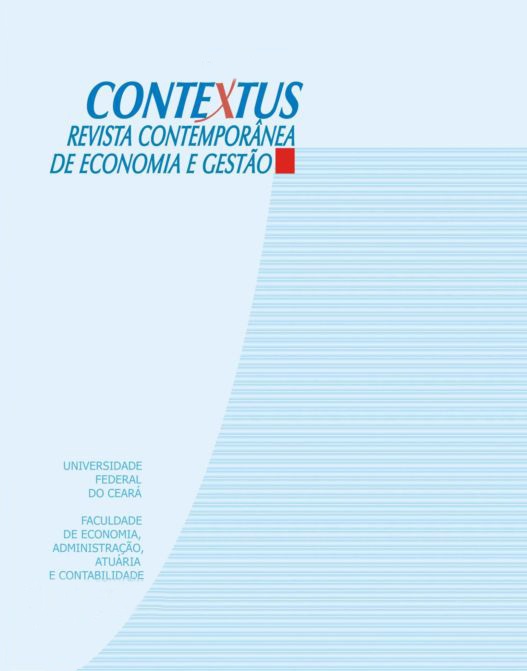ENVIRONMENTAL TECHNOLOGIES AND IMPACTS ON ECONOMIC AND FINANCIAL PERFORMANCE: THE CASE OF CELULOSE IRANI S/A
DOI:
https://doi.org/10.19094/contextus.v12i1.32171Keywords:
Environmental technologies. Performance. Economic-financial indicators. Sustainability reports. Financial statements.Abstract
This article analyzes the impact of environment technologies in the financial performance of company’s pulp and paper. Among the investments it was delimited in this study, two projects implemented by the company: the plant cogeneration power station and upgrading of sewage treatment station. To collect data, document analysis and content was conducted by means of descriptive and quantitative procedure, based on secondary data available in sustainability reporting and financial statements. Environmental investments seem to have favorably impacted the financial performance of the organization, taking into account only the indicators of economic value and cash flow, in particular MVA and EBITDA despite the international financial crisis. However, there is evidence that environmental investments are in line with the policy to mitigate environmental impacts during the production process of the company Irani. This is proved by the results obtained so far, which shows that the CDM projects since its consolidation enabled a reduction in the emission of approximately 200 000 tonnes of CO2 a year.Downloads
Published
How to Cite
Issue
Section
License
The authors, while doing the submission, accept the notice below:
We authors hold the copyright related to our paper and transfer Contextus journal the right for the first publication with a Creative Commons’ international license of the modality Attribution – Non-commercial 4.0, which in turn allows the paper to be shared providing that both the authorship and the journal’s right for initial release are acknowledged.
Furthermore, we are aware of our permission to take part in additional contracts independently for non-exclusive distribution of the version of our work published in this journal (e.g. publishing it in an institutional repository or as a book chapter), while acknowledging both the authorship and the journal’s initial publication.
We also certify that the paper is original and up to this date has not been released in any other journal, Brazilian or of another nationality, either in Portuguese or another language, as well as it has not been sent for simultaneous publication in other journals.
Last, we not only know that plagiarism is not tolerated by Contextus but also certify the paper presents the sources of passages from cited works, including those authored by ourselves.









3.png)


1.jpg)



1.jpg)


1.jpg)






.jpg)



1.jpg)

1.jpg)


1.jpg)

1.jpg)
1.jpg)
2.png)




1.jpg)
2.jpg)

1.jpg)





1.jpg)


1.jpg)
1.jpg)
